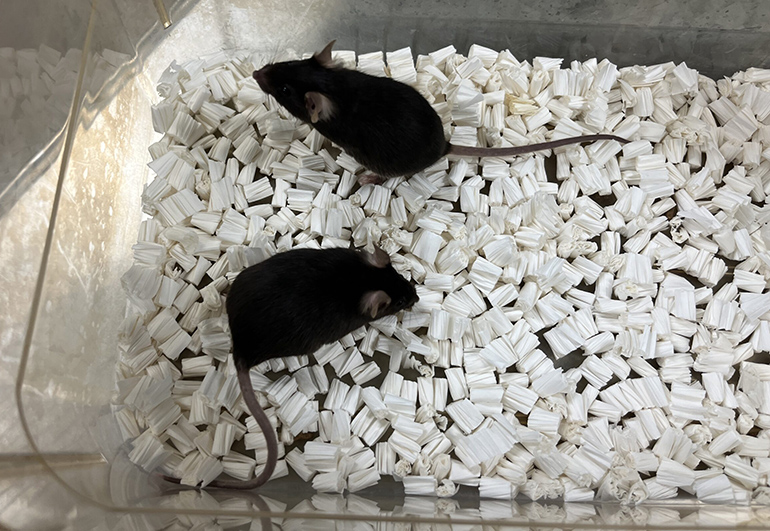Researchers at Hokkaido University in Japan have developed a biomarker test for Alzheimer’s disease that detects amyloid β binding exosomes in a blood sample. While amyloid β plaques in the brain are characteristic of Alzheimer’s, these researchers have previously reported that amyloid β build-up in the brain is associated with an increase in amyloid β binding exosomes. Now, they have gone one step further and developed a test for such exosomes in blood samples, potentially paving the way for an inexpensive blood test that could provide an early diagnosis for Alzheimer’s disease. The researchers used a Digital Invasive Cleavage Assay to detect the exosomes, which involves tiny droplets in microscopic wells on a chip and detection of a fluorescent signal when the exosomes within the droplets are cleaved apart.

Alzheimer’s disease is a major concern for our aging population. Alzheimer’s patients are underserved, with a lack of effective treatments. Even diagnosing the disease is tricky. A definitive diagnosis can only be obtained by examining the brain post-mortem. In the meantime, clinicians typically analyze cerebrospinal fluid, which requires an invasive lumbar puncture. Another option is positron emission tomography imaging, but this is quite expensive and is often unwarranted given a lack of treatment options.
In an effort to develop a more accessible alternative, these researchers have turned to exosomes, the tiny extracellular vesicles released by cells. In previous work, these researchers showed that levels of amyloid β binding exosomes, which are exosomes with amyloid β bound to the outside, increase as amyloid β levels increase in the brain, suggesting that these tiny vesicles may serve as a useful biomarker.
 Concentration of amyloid β-binding exosomes that were detected by the Digital ICA chip in the blood of mice of different ages. asterisks represent significant results (Kohei Yuyama, et al. Alzheimer’s Research & Therapy. October 3, 2022).
Concentration of amyloid β-binding exosomes that were detected by the Digital ICA chip in the blood of mice of different ages. asterisks represent significant results (Kohei Yuyama, et al. Alzheimer’s Research & Therapy. October 3, 2022).
To detect the exosomes in blood, the researchers turned to a Digital Invasive Cleavage Assay. This technology involves a chip that contains up to one million microscopic wells and can detect the exosomes in a relatively small 100 µL blood sample. The wells contain tiny droplets that trap the exosomes in individual wells, and the wells light up with fluorescence when the exosomes are cleaved in each well as part of the assay.
The assay is highly sensitive, allowing target protein measurements at femtogram levels. The researchers are in the process of conducting human trials of their system, in the hope that it will provide a viable diagnostic technology for Alzheimer’s disease. Interestingly, the technology may also be suitable in detecting exosome biomarkers of other diseases.
Study in journal Alzheimer’s Research & Therapy: Immuno-digital invasive cleavage assay for analyzing Alzheimer’s amyloid ß-bound extracellular vesicles
Via: Hokkaido University
